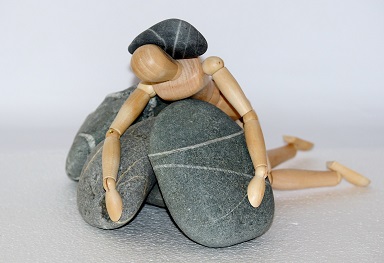Self-Harm

Few things are more distressing than seeing someone we care about harm themselves. People who choose this behaviour may feel that nobody cares about them but, in a strange way, self-harm can also be an attempt to demonstrate to themselves that they care, that at least they are there.
Why Self-Harm?
- To give some expression to really painful or hard to understand emotions
- To gain some sense of control when life feels all messed up
- To prove to yourself (and others) that you are really real and not invisible
- To communicate in a way that will let others know how strongly you are feeling, when you can't find the words to express yourself
- To overcome the sense of numbness that may follow trauma or prolonged grief and stress
What Happens In Self-Harm?
- Cutting
- Scratching
- Burning
- Biting
- Hitting
- Head-banging
- Pulling out hair
- Picking at scabs or wounds
As implied, any one or any combination of these behaviours directed towards the self, either on a regular basis or over a period of time may be cause for concern.
What Are The Symptoms To Look For?
- Guilt (this may be a general pattern and not just in relation to self-harming behaviours)
- Depression
- Shame
- Poor self-esteem
- Difficulty in expressing personal needs, wants, or feelings
- Talking in a way which shows self-hatred
- Cutting oneself off from relationships and activities (even those which have previously been enjoyable)
- Expressing or feeling a general sense of powerlessness
While these symptoms may also indicate other issues, if they occur along with the self-harming behaviours mentioned above, then please seek help from a counsellor or someone you can trust.
What Self-Harm Is Not:
- An automatic indication of a death wish. In fact, self-harm is often an attempt to cope on a temporary basis, with the underlying hope that things will change for the better in the future. Don't assume that this is a warning of suicide (but do treat this behaviour as a serious cry for help).
- Attention seeking. If we believe this, then we may treat the person as "naughty" or "selfish" and feel that they should either be ignored or punished.
- A lifelong behaviour. Rather it is more likely to be a response to trauma or long term grief, pressure and stress. It is more common among adolescents, who are still forming their life skills and may be triggered by relationship breakdown, abuse, grief and loss, or sickness and disability.
- Incurable. While it is scary, it is possible to change this pattern of behaviour with caring, skilled, professional support.
How Can Counselling Help?
Working with a trained counsellor gives you the opportunity to be heard in a safe and totally accepting environment. Counselling gives you a sense of being visible and of having worth. At Point of Change Counselling, we have had over ten years experience of working with self-harming issues and can help you to explore new options for coping with your life circumstances and finding healthier relief from your pain.
If you know someone who is self-harming, contact Alli at Point Of Change Counselling for an appointment.
